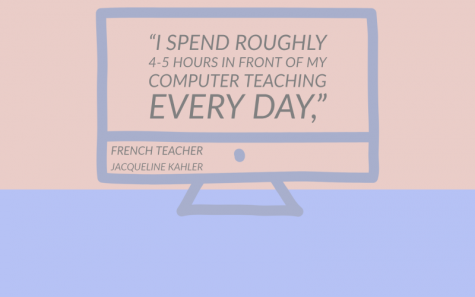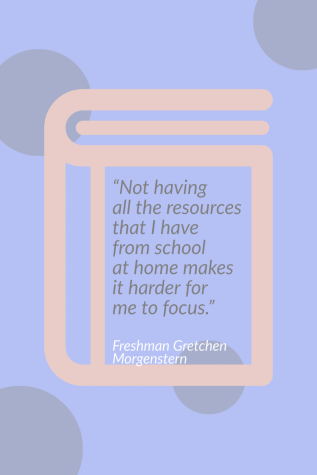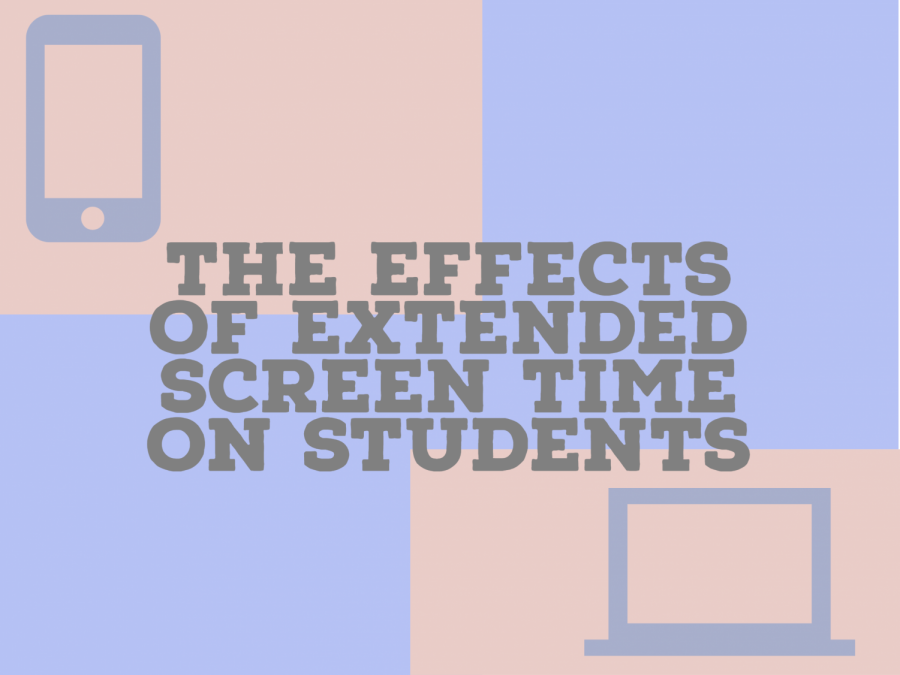As Coronavirus continues to ravage the nation, school season has rolled back in. Education has changed as we know it, from in-person class to staring at a computer for eight hours a day. Things like going from copious amounts of free time to school on a screen for eight hours is most likely going to have a negative impact on some students.
Both students and teachers alike are struggling to get used to the changes that come with online school. 
“I spend roughly 4-5 hours in front of my computer teaching every day,” French teacher Jacqueline Kahler said. “When I include grading, creating material and prepping for the next day, it’s another 4-5 hours at least. I’m averaging 10 hours a day (off and on) in front of a screen.”
Before school started, most people didn’t average 10 hours a day at their computer and that can be an immense change for many. Being online for so many hours a day can affect the brain and its development.
According to the 2019 article Screen Time and the Brain by Debra B. Ruder, much of what happens on screen provides “impoverished” stimulation of the developing brain compared to reality. People need a diverse menu of online and offline experiences, including the chance to let their minds wander. Boredom is the space in which creativity and imagination happen.
“I think my attention span isn’t as long when I have so many distractions from being at home,” says freshmen Gretchen Morgenstern. “Not having all the resources that I have from school at home makes it harder for me to focus.”
Having to be online for so long has started to affect students ability to learn and pay attention while in class. “I think school-related screen time should be at most four hours,” freshmen Sayer Latta said. “I say at most four hours because I feel that most people will get off track or not involved after that.”
Although it is possible to pay attention for long periods of time, it can be hard for students to stay on track while at home with many distractions at each corner.
“A student must engage in the class and with the teacher in order to benefit from the instruction. You get out of it what you put into it,” Kahler said. “It’s easier to pay attention when you are interacting and processing the instruction.”
Transitioning to online learning has taken its toll on both students and teachers. Remaining online for so many hours a day can be mentally and physically straining for those who are unprepared for the effects a day of online school can bring. The best way to combat the negative effects of excessive screen time is to move around and remember to take lots of breaks whenever possible.


